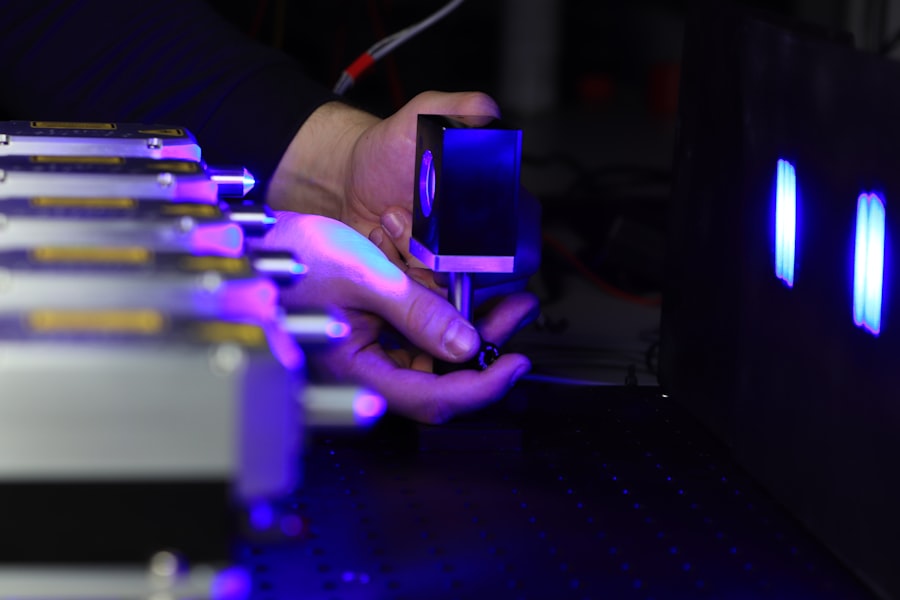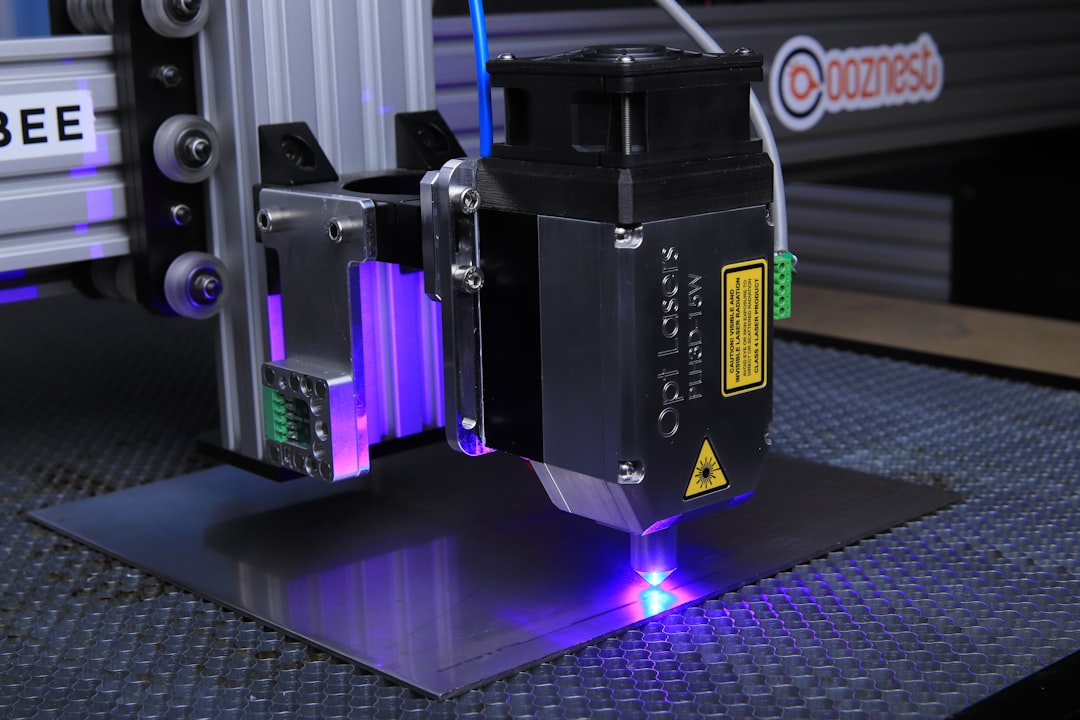Laser hair removal is a popular cosmetic procedure that uses concentrated beams of light to remove unwanted hair. When it comes to black skin, there are some important considerations to keep in mind. The melanin in darker skin tones can make traditional laser hair removal treatments more challenging, as the laser can sometimes target the melanin in the skin rather than just the hair follicle. This can lead to potential skin damage and pigmentation issues if not performed by a skilled professional. However, with advancements in technology and specialized equipment, laser hair removal for black skin has become safer and more effective.
It’s important to understand that not all lasers are suitable for black skin. Traditional lasers such as the Alexandrite and Diode lasers can pose a higher risk of causing burns or hyperpigmentation in darker skin tones. However, Nd:YAG lasers are considered safer for black skin because they have longer wavelengths that are able to bypass the melanin in the skin and target the hair follicle more effectively. This makes Nd:YAG lasers the preferred choice for laser hair removal on black skin. It’s crucial to seek out a professional who is experienced in treating black skin and uses the appropriate laser technology to ensure safe and effective results.
Key Takeaways
- Laser hair removal for black skin requires specialized knowledge and equipment due to the higher risk of pigmentation changes and burns.
- It is important to find a professional with experience and expertise in treating black skin to ensure safe and effective laser hair removal.
- Before undergoing laser hair removal, it is crucial to prepare the skin by avoiding sun exposure and certain skincare products that can increase the risk of complications.
- The laser hair removal process for black skin may require more sessions and a longer treatment plan to achieve optimal results.
- After laser hair removal, it is important to follow a post-treatment care routine to minimize the risk of pigmentation changes and other side effects.
Finding the Right Professional for Laser Hair Removal
When it comes to laser hair removal for black skin, finding the right professional is crucial for achieving safe and effective results. It’s important to seek out a licensed and experienced practitioner who has specific expertise in treating darker skin tones. Look for professionals who have a proven track record of successfully treating black skin and who use Nd:YAG lasers, which are considered safer for darker skin tones.
Before committing to a treatment, schedule consultations with different professionals to discuss your specific needs and concerns. During these consultations, ask about their experience with laser hair removal on black skin, the type of laser technology they use, and any potential risks or side effects. It’s also important to inquire about their approach to adjusting laser settings for different skin tones and their protocol for minimizing the risk of hyperpigmentation or burns.
Additionally, consider seeking out reviews and testimonials from other individuals with black skin who have undergone laser hair removal with the professional you are considering. This can provide valuable insight into the practitioner’s expertise and the quality of their treatments. By taking the time to research and find a qualified professional, you can ensure that your laser hair removal experience is safe and tailored to the specific needs of your black skin.
Preparing for Laser Hair Removal on Black Skin
Preparing for laser hair removal on black skin involves taking certain steps to ensure the best possible outcome and minimize the risk of complications. Before your treatment, it’s important to avoid sun exposure and tanning beds, as this can increase the risk of pigmentation issues and burns during the laser procedure. Additionally, it’s recommended to avoid plucking, waxing, or electrolysis for at least six weeks prior to your treatment, as these methods can disrupt the hair follicle and make laser hair removal less effective.
It’s also important to inform your practitioner about any medications you are taking, as certain medications can make your skin more sensitive to light and increase the risk of adverse reactions during laser hair removal. Your practitioner may advise you to temporarily discontinue these medications before your treatment to minimize any potential risks.
In addition, it’s crucial to follow any specific pre-treatment instructions provided by your practitioner, such as shaving the treatment area before your appointment. By following these guidelines and preparing your skin properly, you can help ensure that your laser hair removal treatment is as safe and effective as possible for your black skin.
The Laser Hair Removal Process for Black Skin
| Aspect | Information |
|---|---|
| Suitable Laser Type | Nd:YAG laser |
| Skin Type | IV-VI |
| Treatment Sessions | 6-8 sessions |
| Interval between Sessions | 4-6 weeks |
| Possible Side Effects | Hyperpigmentation, hypopigmentation, burns |
| Precautions | Avoid sun exposure, discontinue use of certain skincare products |
The laser hair removal process for black skin involves several key steps to ensure safe and effective results. During the treatment, a handheld device emitting concentrated beams of light is passed over the treatment area, targeting the pigment in the hair follicles and damaging them to inhibit future hair growth. For black skin, Nd:YAG lasers are typically used due to their longer wavelengths that are able to bypass the melanin in the skin and target the hair follicle more effectively.
Before beginning the treatment, your practitioner will adjust the laser settings based on your specific skin tone to minimize the risk of hyperpigmentation or burns. They will also provide you with protective eyewear to shield your eyes from the laser light during the procedure. The sensation during the treatment is often described as a mild stinging or snapping feeling, but many individuals find it tolerable.
The duration of the treatment will depend on the size of the treatment area, with smaller areas such as the upper lip taking just a few minutes, while larger areas like the legs may take up to an hour. Multiple sessions are typically required to achieve optimal results, as hair grows in different cycles and multiple treatments are needed to target all active hair follicles. By following these steps and undergoing laser hair removal with a skilled professional using Nd:YAG lasers, individuals with black skin can achieve safe and effective hair reduction results.
Post-Treatment Care for Laser Hair Removal on Black Skin
After undergoing laser hair removal on black skin, it’s important to follow specific post-treatment care guidelines to promote healing and minimize the risk of complications. Following your treatment, you may experience some redness or swelling in the treated area, which is normal and typically subsides within a few hours. Your practitioner may recommend applying a soothing gel or cream to alleviate any discomfort and reduce inflammation.
It’s crucial to avoid sun exposure and tanning beds for at least two weeks following your treatment, as your skin may be more sensitive to UV rays during this time. Additionally, it’s important to avoid hot showers, saunas, or activities that cause excessive sweating for a few days after your treatment to prevent irritation or infection in the treated area.
It’s also recommended to avoid plucking, waxing, or electrolysis between your laser hair removal sessions, as these methods can disrupt the hair follicle and interfere with the effectiveness of your treatments. By following these post-treatment care guidelines and any specific instructions provided by your practitioner, you can help ensure that your skin heals properly and that you achieve optimal results from your laser hair removal treatments on black skin.
Potential Risks and Side Effects of Laser Hair Removal for Black Skin

While laser hair removal is generally safe for black skin when performed by a skilled professional using appropriate technology, there are potential risks and side effects to be aware of. One common concern is the risk of hyperpigmentation, which can occur if the laser targets the melanin in the skin rather than just the hair follicle. This can lead to darkening of the skin in the treated area, which may be temporary or permanent depending on the individual’s skin type and how their skin responds to the treatment.
Another potential risk is burns, particularly if the laser settings are not properly adjusted for darker skin tones. Burns can cause pain, blistering, and scarring in severe cases, highlighting the importance of seeking out a practitioner with specific expertise in treating black skin and using Nd:YAG lasers.
Additionally, some individuals may experience temporary redness, swelling, or discomfort in the treated area following their laser hair removal session. These side effects typically subside within a few hours or days but should be monitored closely for any signs of infection or other complications.
By understanding these potential risks and side effects and seeking out a qualified professional who specializes in laser hair removal for black skin, individuals can minimize these risks and achieve safe and effective results from their treatments.
Maintaining Results of Laser Hair Removal on Black Skin
After completing a series of laser hair removal treatments on black skin, it’s important to take steps to maintain your results and keep unwanted hair at bay. While laser hair removal offers long-term reduction in hair growth, it’s not always permanent, and some individuals may experience regrowth over time.
To maintain your results, consider scheduling periodic maintenance sessions with your practitioner as needed. These sessions can help target any new hair growth that may occur over time and ensure that you continue to enjoy smooth, hair-free skin.
In addition to maintenance sessions, it’s important to continue following a proper skincare routine that includes protecting your skin from sun exposure. This is particularly important for individuals with black skin, as sun exposure can increase the risk of pigmentation issues and other complications following laser hair removal.
By taking these steps and staying proactive about maintaining your results, you can enjoy long-lasting benefits from your laser hair removal treatments on black skin and achieve smooth, hair-free skin for years to come.
If you’re considering laser hair removal for black skin, it’s important to do your research and find a reputable provider. In a recent review of laser hair removal by Lush Aesthetics in Georgetown, KY, the author discusses their experience with the procedure and its effectiveness on different skin types. This article provides valuable insights into the process and results of laser hair removal, making it a must-read for anyone interested in this treatment. For more information on the topic, check out this review and other related articles on laser hair removal.
FAQs
What is laser hair removal?
Laser hair removal is a cosmetic procedure that uses a concentrated beam of light (laser) to remove unwanted hair. The laser targets the pigment in the hair follicles, damaging them and inhibiting future hair growth.
Is laser hair removal safe for black skin?
Yes, laser hair removal can be safe for black skin when performed by a qualified and experienced professional using the appropriate equipment. It is important to use a laser that is specifically designed for use on darker skin tones to minimize the risk of pigmentation changes or burns.
What are the benefits of laser hair removal for black skin?
Laser hair removal can effectively target coarse and dark hair on black skin without causing damage to the surrounding skin. It can also help to reduce ingrown hairs and provide long-lasting results.
Are there any potential risks or side effects for laser hair removal on black skin?
While laser hair removal is generally safe for black skin, there is a risk of temporary pigment changes, burns, or scarring if the procedure is not performed correctly. It is important to seek treatment from a qualified professional to minimize these risks.
How many sessions are typically needed for laser hair removal on black skin?
The number of sessions needed for laser hair removal on black skin can vary depending on the individual’s hair type, skin tone, and the area being treated. On average, multiple sessions spaced several weeks apart are usually required to achieve optimal results.
Is laser hair removal permanent for black skin?
Laser hair removal can provide long-lasting hair reduction for black skin, but it is not always permanent. Some individuals may experience regrowth over time, although the hair that does grow back is often finer and lighter in color. Maintenance sessions may be needed to sustain the results.






